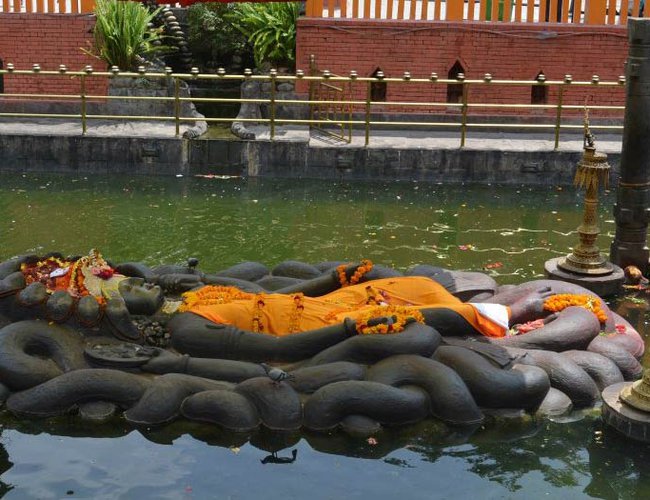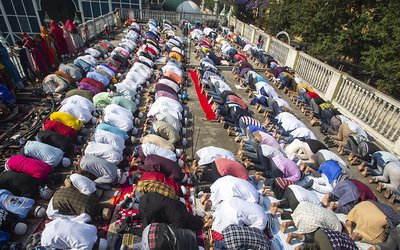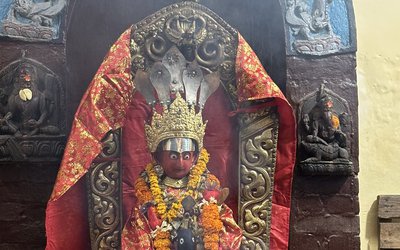
Hari Sayani or Devshayani Ekadashi is considered to be one of most auspicious Ekadashi among others. Devshayani Ekadashi is also known as Shayani Ekadashi. Ekadashi falls twice in a month, one is observed during Shukla Paksha and another is observed during Krishna Paksha. Devshayani Ekadashi is going to be observed on Eleventh day during Shukla Paksha in the month of Ashadha. This month, it will be celebrated on June 29 this year.
On the day of Harishayani Ekadashi, Hindus plant Tulasi/basil (Ocimum tenuiflorum) on their yards, which they worship as a form of Lord Vishnu for next four months till the day of Haribodhini Ekadashi, the concluding day of the Chaturmas.
The Chaturmas, a period from the 11th day of waxing moon of the month of Ashadh (Ashadh Shukla Ekadashi) to the 11th day of waxing moon of the month of Kartik (Kartik Shukla Ekadashi) is considered a holy period for the worship of Lord Vishnu.
Popularly, the two Ekadashis are also called Thuli (Great) Ekadashis. Observing the Chaturmas Brata or fasting is regarded as very auspicious, which should be done after planting the saplings of Tulasi on Ekadhashi.
Eadashis are the days dedicated to Lord Vishnu. Hari Sayani Ekadashi over here is also one among them. Hari Sayani, by words, means the sleeping Hari (Lord Vishnu). It is said that on this day, Lord Vishnu goes to deep sleep for four months in Sheersagar. And that period of time is well known as the Chaturmas (the period of four months).
During these four months, people do not do mangal religious acts such as wedding, initiation of the construction of a new house as it is believed that the god himself is asleep and couldn’t give his blessings.
It has several more names like Shayani Ekadashi, Maha Ekadashi, Prathama Ekadashi (first Ekadashi), Padma Ekadashi, Devshayani Ekadashi, Devpodhi Ekadashi.
People on this day, as expected visit Narayansthan (the temples of Lord Vishnu), worship Lord Vishnu along with Goddess Laxmi and plant Tulsi, a herbal medicinal plant. Tulsi plant has also its own significance both religiously and medically.
Hindus across Nepal are celebrating the Harishayani Ekadashi festival, the first day of the four-month holy period of Chaturmas with fasting and worship and prayer to Lord Vishnu.
On the day of Harishayani Ekadashi, Hindus plant Tulasi/basil (Ocimum tenuiflorum) on their yards, which they worship as a form of Lord Vishnu for next four months till the day of Haribodhini Ekadashi, the concluding day of the Chaturmas.
The Chaturmas, a period from the 11th day of waxing moon of the month of Ashadh (Ashadh Shukla Ekadashi) to the 11th day of waxing moon of the month of Kartik (Kartik Shukla Ekadashi) is considered a holy period for the worship of Lord Vishnu.
Popularly, the two Ekadashis are also called Thuli (Great) Ekadashis. Observing the Chaturmas Brata or fasting is regarded as very auspicious, which should be done after planting the saplings of Tulasi on Ekadhashi.
The holy plant Tulsi is regarded as the plant to give the oxygen all the time with its religious, medicinal importance in Nepal
Tulsi or Tulasi (Ocimum tenuiflorum) or Holy Basil is a sacred plant in Hindu belief. Hindus regard it as an earthly manifestation of the goddess Tulsi; she is regarded as a great worshipper of the god Vishnu. The offering of its leaves is mandatory in ritualistic worship of Vishnu and his forms like Krishna and Vithoba.
Many Hindus have tulsi plants growing in front of or near their home, often in special pots or a special masonry structure known as Tulsi Vrindavan as this is related to their culture. Traditionally, Tulsi is planted in the center of the central courtyard of Hindu houses. The plant is cultivated for religious and medicinal purposes, and for its essential oil. It has many health benefits as well.
- Global IME Capital’s “Samunnat Yojana 2” Mutual Fund Opens for Public Offering from July 6
- Jul 03, 2025
- Nepal Among Investment-Friendly Countries, Immense Opportunities Exist – Prime Minister
- Jul 03, 2025
- Supreme Court upholds appointment of 52 officials
- Jul 03, 2025
- Weather Forecast: Generally Cloudy In The Hilly Areas With Heavy Rainfall In Some Areas Of Bagmati And Koshi Province
- Jul 03, 2025
- MCA-Nepal Welcomes Continued U.S. Support for MCC Nepal Compact Implementation
- Jul 02, 2025















